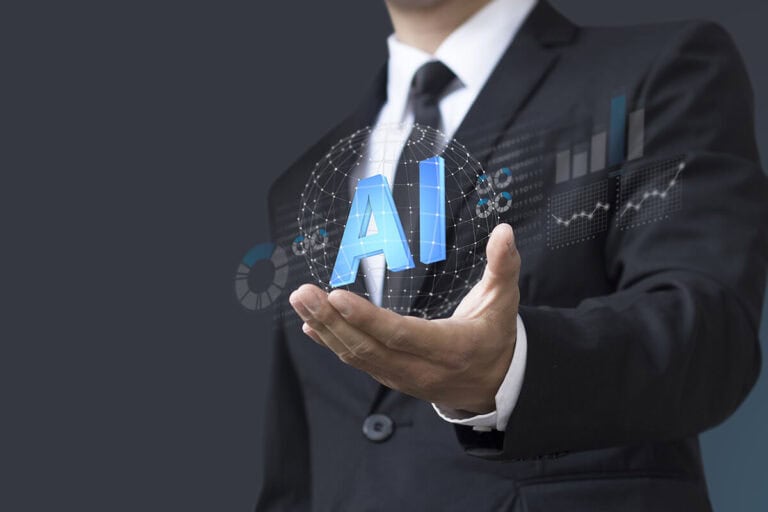You may have heard the phrase “Natural Language Processing (NLP)” in our modern dialogue on technology. As a definition, NLP is a field of Artificial Intelligence (AI) used to understand and analyze human language. It recognizes human linguistics patterns, can interpret natural language and extract specific data points from large amounts of unstructured data.
Table of Contents
ToggleWe’ve witnessed various milestones and new processes built upon NLP, and there is still a lot of potential yet to be realized. We’re witnessing the early stages of linguistic approaches to text-analytics, with its potential barely tapped. There have already been dramatic changes caused by NLP technologies in various industries. NLP’s impact, while perhaps less obvious, will span industries like law, finance, and healthcare.
Legal
While lawyers themselves are not at risk for job replacement by pure technology, how they perform their jobs will be drastically disrupted. Attorneys continually execute time-consuming, monotonous tasks to perform their job. This is where Natural Language Processing will have the biggest impact on the legal industry.
For a lawyer preparing for a court case, for instance, NLP technology will prove both time-saving and error-reducing. NLP-based solutions, in contrast to pure machine learning approaches, can extract meaning from content, data and document collections, all at breakneck speed. This means that a linguistic-based program can read and understand Word documents and emails and create connections between documents by identifying relationships between relevant entities. These programs can examine individual words, their application and context, and how frequently they appear together to identify patterns across thousands of records.
Using this technology can save hours of labor, which means more billable hours are saved for more cases and clients. One can even argue that Natural Language Processing technology, combined with machine learning, can reduce the cost of legal support for a court proceeding, making good legal help more accessible to the masses.
Financial Services
In the financial community, news, rumors and facts are among the most important factors that can determine a trader or investor’s next decision. When a piece of news such as “the inflation rate is expected to increase next month” arrives, the consequences are immediately visible and traders will likely base their buy and sell decisions on the new information. A portfolio manager or trader needs to sift through all relevant information sources to find and identify important bits and pieces. It is a laborious, time-consuming task.
The combination of Natural Language Processing, rule-based information extraction, statistical analysis and machine learning can greatly reduce the effort involved in retrieving and digesting all this information by applying the pre-filtering steps automatically. The insights gleaned from the technology can do everything from identify good investment opportunities to help traders know when to sell stock. The practical implications of NLP technology for the financial industry are huge.
Healthcare
Physicians’ records and notes contain a wealth of medically useful data. These notes are often easily lost, hard to keep track of or difficult to decipher. Coordinating one doctor’s notes on a patient with their other files is a time consuming process.
In this department, Natural Language Processing can be revolutionary for healthcare professionals. The technology can analyze reams of medical records and identify (and derive meaning from) hidden correlations between symptoms, diagnoses, medications and treatments. This gives healthcare providers new tools to manage quality care initiatives. For example, considering risk predictions for illnesses based on extracted insights.
Linguistic-based solutions can infer words’ intended meanings, which allows healthcare providers to build never-before-seen insights into physician notes. There are now applications that can both detect and notify administrators when new patients are at high risk for re-admittance, in real-time while the patient is still being treated at the hospital.
With the volumes and varieties of unstructured electronic data available to professionals today—everything from media articles to email caches to medical records to law suit filings to entire books—Natural Language Processing is a valuable technology to practitioners in just about any field. It has many practical uses for all kinds of businesses, increasing efficiency for both company management and labor alike.
Summary:
Natural Language Processing
Natural Language Processing (NLP) is a field of Artificial Intelligence (AI) used to understand and analyze human language. It recognizes human linguistics patterns, can interpret natural language and extract specific data points from large amounts of unstructured data. We’ve witnessed various milestones and new processes built upon NLP, and there is still a lot of potential yet to be realized. We’re witnessing the early stages of linguistic approaches to text-analytics, with its potential barely tapped. There have already been dramatic changes caused by NLP technologies in various industries. NLP’s impact, while perhaps less obvious, will span industries like law, finance, and healthcare.





